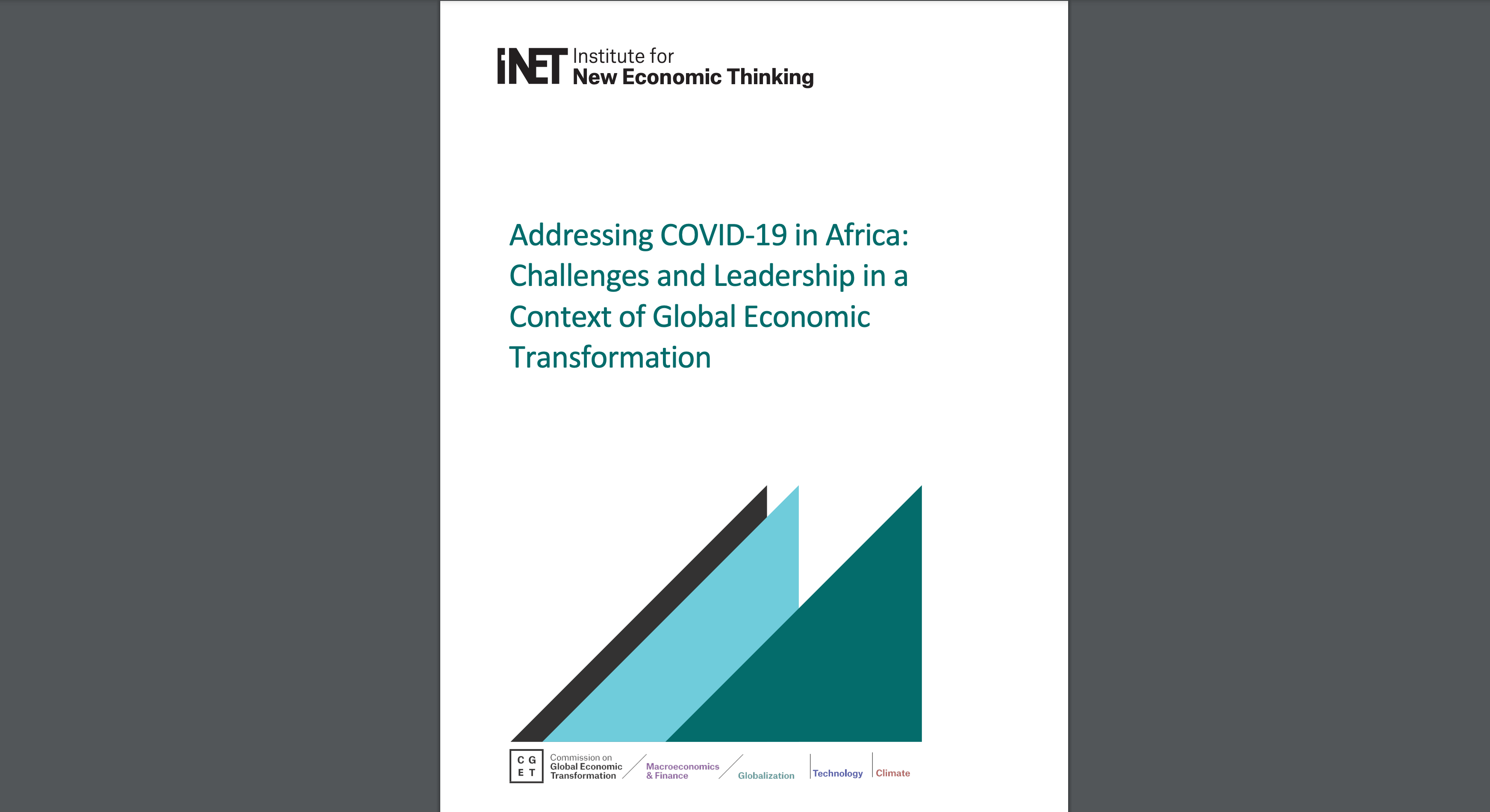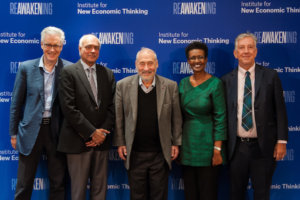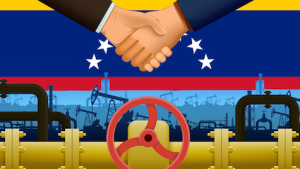
Foreword by Rohinton Medhora, President of the Center for International Governance Innovation and CGET Commissioner
When dealing with ambiguous terms, David S. Landes states at the start of his landmark study of the Industrial Revolution in Western Europe The Unbound Prometheus, the first duty of a writer is definition. So it must be with economic transformation.
Transformation seldom just happens. The globalization of the past four decades has created unprecedented levels of wealth and poverty alleviation, and fostered – and been nourished by - dramatic technological advances. It has also been unbalanced – high in enabling capital mobility and the spread of digitally-enabled technologies, appreciable but slower in the trade of goods and many services, and slowest in the movement of people and the creation of institutions and processes to manage change. The consequences have been major, complex, and numerous. While cause and effect and relative weights of each component are impossible to sort out, the mix is a daunting one indeed.
Epitomized by the financial crisis of 2007 and events leading up to and after it, the bundle of related issues includes continued financial sector fragility, slow or stagnant growth in many parts of the world including the advanced economies, worsening income and wealth inequality (especially within countries), xenophobia, inadequate public and private responses to crisis and to social and political fracture, and disruptions to work particularly from new technologies. Climate change and environmental degradation are an integral part of this canvass, as are changing geopolitics and the contested rise of China. And in November 2019, along came the first known case of COVID-19.
The pandemic hasn’t raised new issues as much as it has added octane to existing ones. It has implications for global cooperation, particularly with respect to innovation and intellectual property; faith in public action and in science; the civil liberties-security-privacy trade-off; social cohesion; U.S.-China relations with each other and with the rest of the world; far-flung supply chains and indeed on globalization itself.
Initiated in October 2017 under the stewardship of Nobel economics laureates Michael Spence and Joseph Stiglitz, the Commission on Global Economic Transformation is examining these trends with a view to proposing ways forward to maximize the benefits of transformation and mitigate its drawbacks. While much of our work is thematic – on digital technologies; the financial sector; climate change and energy; Globalization and the State – Africa forms a critical crosscut, for it is here that the issues we examine play out forcefully and in a distinct economic, social and political context. It is also in Africa, arguably, that the scope for transformation remains largest.
Amidst a wave of democratization and openness (now under threat even regression), late demographic transition, fragile but strengthening States and markets, and the continued advance of regionalization, scenarios and options abound. Many are pessimistic, especially as robotics and machine learning techniques automate the lower end of the value chain where late industrializers typically operate, thus eliminating employment growth. But a youthful population, rich minerals and still extensive potential for land use, improved governance and the potential for leapfrogging and next-generation investments surely provide ample room for optimism too.
At the time of writing, South Africa’s Afrigen Biologics has just announced the autonomous development of an mRNA vaccine for COVID-19 using publicly available data from Moderna. This while traditional “last mile” challenges of infrastructure and logistics continue to bedevil manufacturing and distribution on the continent. We may be no closer to a definition of economic transformation to suit Landes’s challenge, but we know it when we see it. Managing change and contradiction is timeless and defies geographic boundaries. The case of Africa, as described in this fascinating set of conversations with eminent Africans thoughtfully curated by Camilla Toulmin and Folashadé Soulé, is special but not unique.
This special report presents 25 interviews from the “COVID-19 and Africa series” which forms part of INET’s Commission on Global Economic Transformation (CGET). The series is comprised of conversations with African and Africa-based economists and development experts, civil society leaders, private sector and regional organisations’ leaders about their perspectives on economic transformation, development models and how the COVID situation could re-shape the options and pathways for Africa’s development.
Conducted between May 2020 and March 2022, these interviews offer personal insights into how the pandemic was addressed by African leaders, the challenges they encountered, the diverse impacts on African societies and economies, and the endogenous solutions they have come up with.



